Frequent persons on Angola's street signs
countries
17 names / 45 streets
Deolinda Rodrigues
 5
Deolinda Rodrigues Francisco de Almeida was an Angolan nationalist, militant, writer, and translator, who also taught, wrote poetry, and worked as a radio host. Born into a Methodist family, she...
5
Deolinda Rodrigues Francisco de Almeida was an Angolan nationalist, militant, writer, and translator, who also taught, wrote poetry, and worked as a radio host. Born into a Methodist family, she...
Agostinho Neto
 5
António Agostinho Neto was an Angolan communist politician and poet. He served as the first president of Angola from 1975 to 1979, having led the Popular Movement for the Liberation of Angola (MPLA)...
5
António Agostinho Neto was an Angolan communist politician and poet. He served as the first president of Angola from 1975 to 1979, having led the Popular Movement for the Liberation of Angola (MPLA)...
Amílcar Cabral
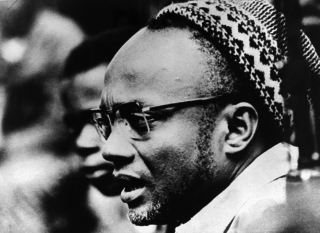 5
Amílcar Lopes da Costa Cabral was a Bissau-Guinean and Cape Verdean agricultural engineer, political organizer, and diplomat. He was one of Africa's foremost anti-colonial leaders. He was also a...
5
Amílcar Lopes da Costa Cabral was a Bissau-Guinean and Cape Verdean agricultural engineer, political organizer, and diplomat. He was one of Africa's foremost anti-colonial leaders. He was also a...
Fidel Castro
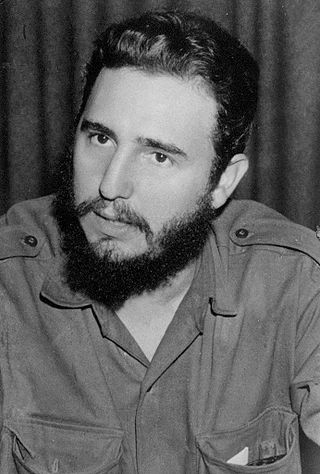 3
Fidel Alejandro Castro Ruz was a Cuban revolutionary and politician who was the leader of Cuba from 1959 to 2008, serving as the prime minister of Cuba from 1959 to 1976 and president from 1976 to...
3
Fidel Alejandro Castro Ruz was a Cuban revolutionary and politician who was the leader of Cuba from 1959 to 2008, serving as the prime minister of Cuba from 1959 to 1976 and president from 1976 to...
Samora Machel
 3
Samora Moisés Machel was a Mozambican military commander and political leader. A socialist in the tradition of Marxism–Leninism, he served as the first President of Mozambique from the country's...
3
Samora Moisés Machel was a Mozambican military commander and political leader. A socialist in the tradition of Marxism–Leninism, he served as the first President of Mozambique from the country's...
Pedro de Castro Van Dúnem
 2
Pedro de Castro van Dúnem, also known as Comandante Loy, was an Angolan politician. He served in various leading functions within the MPLA during the Angolan liberation struggle against Portuguese...
2
Pedro de Castro van Dúnem, also known as Comandante Loy, was an Angolan politician. He served in various leading functions within the MPLA during the Angolan liberation struggle against Portuguese...
Katyavala Bwila I
 2
Katyavala Bwila I, ou simplesmente Katyavala I, foi o primeiro Soma Inene do Reino Bailundo, sendo portanto fundador do país Bailundo, a maior de todas as nações ovimbundo.
2
Katyavala Bwila I, ou simplesmente Katyavala I, foi o primeiro Soma Inene do Reino Bailundo, sendo portanto fundador do país Bailundo, a maior de todas as nações ovimbundo.
Anibal João Melo
 2
Anibal João da Silva Melo is a writer, journalist, and was a member of the National Assembly of Angola. Now Melo is serving the position of the Ministro da Comunicação Social.
2
Anibal João da Silva Melo is a writer, journalist, and was a member of the National Assembly of Angola. Now Melo is serving the position of the Ministro da Comunicação Social.
Paulo Dias de Novais
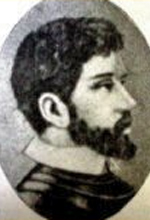 2
Paulo Dias de Novais, a fidalgo of the Royal Household, was a Portuguese colonizer of Africa in the 16th century and the first Captain-Governor of Portuguese Angola. He was the grandson of the...
2
Paulo Dias de Novais, a fidalgo of the Royal Household, was a Portuguese colonizer of Africa in the 16th century and the first Captain-Governor of Portuguese Angola. He was the grandson of the...
Joseph of Anchieta
 2
José de Anchieta y Díaz de Clavijo, SJ was a Canarian Jesuit missionary to the Portuguese colony of Brazil in the second half of the 16th century. A highly influential figure in Brazil's history in...
2
José de Anchieta y Díaz de Clavijo, SJ was a Canarian Jesuit missionary to the Portuguese colony of Brazil in the second half of the 16th century. A highly influential figure in Brazil's history in...
Mary, mother of Jesus
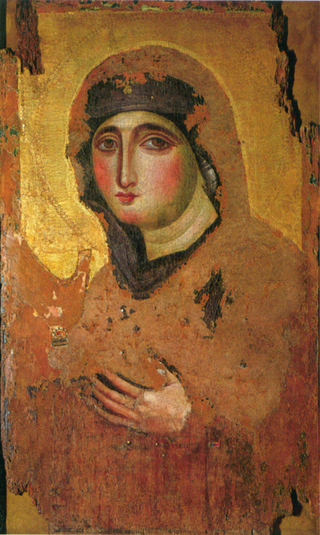 2
Mary was a first-century Jewish woman of Nazareth, the wife of Joseph and the mother of Jesus. She is a central figure of Christianity, venerated under various titles such as virgin or queen, many of...
2
Mary was a first-century Jewish woman of Nazareth, the wife of Joseph and the mother of Jesus. She is a central figure of Christianity, venerated under various titles such as virgin or queen, many of...
Steve Biko
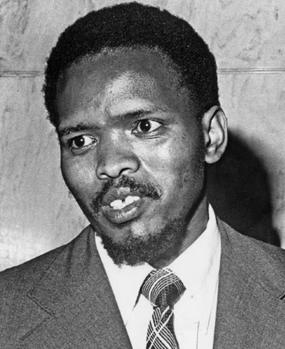 2
Bantu Stephen Biko OMSG was a South African anti-apartheid activist. Ideologically an African nationalist and African socialist, he was at the forefront of a grassroots anti-apartheid campaign known...
2
Bantu Stephen Biko OMSG was a South African anti-apartheid activist. Ideologically an African nationalist and African socialist, he was at the forefront of a grassroots anti-apartheid campaign known...
Saíde Mingas
 2
Avelino Henrique Saíde Vieira Dias Rodrigues Mingas foi um economista, escritor, militar e político, figura destacada na luta anticolonial angolana.
2
Avelino Henrique Saíde Vieira Dias Rodrigues Mingas foi um economista, escritor, militar e político, figura destacada na luta anticolonial angolana.
Jesus
 2
Jesus, also referred to as Jesus Christ, Jesus of Nazareth, and many other names and titles, was a first-century Jewish preacher and religious leader. He is the central figure of Christianity, the...
2
Jesus, also referred to as Jesus Christ, Jesus of Nazareth, and many other names and titles, was a first-century Jewish preacher and religious leader. He is the central figure of Christianity, the...
Kwame Nkrumah
 2
Francis Kwame Nkrumah was a Ghanaian politician, political theorist, and revolutionary. He served as Prime Minister of the Gold Coast from 1952 until 1957, when it gained independence from Britain....
2
Francis Kwame Nkrumah was a Ghanaian politician, political theorist, and revolutionary. He served as Prime Minister of the Gold Coast from 1952 until 1957, when it gained independence from Britain....
Fernando Monteiro de Castro Soromenho
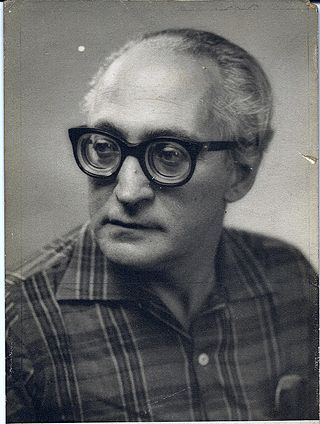 2
Fernando Monteiro de Castro Soromenho was a Portuguese journalist and writer of fiction and ethnology. He is regarded both as a Portuguese neo-realist and a novelist of Angolan literature.
2
Fernando Monteiro de Castro Soromenho was a Portuguese journalist and writer of fiction and ethnology. He is regarded both as a Portuguese neo-realist and a novelist of Angolan literature.
Gamal Abdel Nasser
 2
Gamal Abdel Nasser Hussein was an Egyptian military officer and politician who served as the second president of Egypt from 1954 until his death in 1970. Nasser led the Egyptian revolution of 1952...
2
Gamal Abdel Nasser Hussein was an Egyptian military officer and politician who served as the second president of Egypt from 1954 until his death in 1970. Nasser led the Egyptian revolution of 1952...